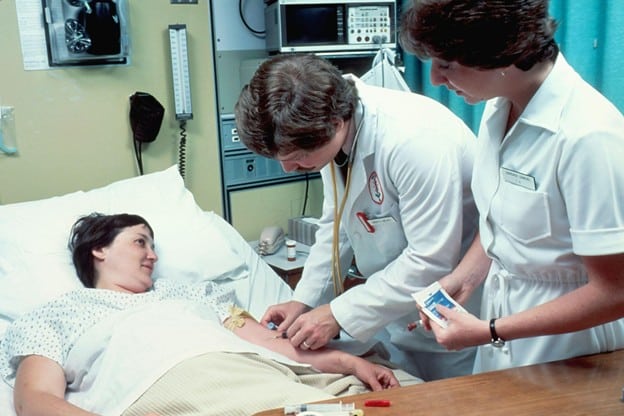Who Qualifies for Paid Studies: Eligibility & How to Participate

Clinical research trials offer a meaningful way to contribute to science and support the development of new treatments that may benefit future generations. Whether you’re a healthy volunteer or living with a specific condition, there are opportunities to get involved.
In this guide, we’ll walk you through who can participate, what kinds of studies exist, how compensation works, and where to find legitimate trials near you. You may be more eligible than you think, and your involvement could help shape the future of healthcare.
Key Takeaways
- Paid studies provide compensation for participation in research.
- Eligibility criteria can vary across different clinical trials.
- Both healthy volunteers and patients may qualify for these studies.
- Understanding requirements is essential to determine your eligibility.
- Participating in paid studies contributes to important medical advancements.
Understanding Paid Studies and Clinical Trials
Paid studies play a vital role in advancing medical knowledge and improving patient care. By participating in clinical trials, individuals contribute to the development of new therapies, the understanding of health conditions, and the refinement of existing treatments. These studies often rely on the involvement of healthy volunteers or individuals with specific medical conditions.
Clinical trials are structured research programs designed to evaluate the safety, effectiveness, and potential side effects of new drugs, devices, or procedures. Paid studies, a subset of these trials, offer financial compensation to participants for their time, commitment, and contributions.
By choosing to take part in a paid clinical study, you support scientific progress and also help pave the way for future treatments that could benefit countless others.
The Importance of Clinical Trials in Medical Research
Clinical trials are at the forefront of medical innovation. They provide essential data on how treatments perform in real-world scenarios and are a critical step in gaining regulatory approval for new therapies. Through these studies, researchers gather valuable insights into disease prevention, diagnosis, and care.
Yet despite their importance, 80% of clinical trials are delayed or even closed due to difficulties with participant recruitment. When you choose to participate, you’re not only helping shape the future of healthcare, you’re also playing a vital role in keeping essential research moving forward, offering hope to patients with limited treatment options.
Overview of Compensation for Participation
Many clinical trials offer compensation to acknowledge the time, travel, and effort required from participants. This support helps make participation more accessible and rewarding, particularly for those contributing to long-term or complex studies.
Compensation can vary based on the length, type, and requirements of the study. In general, participants may receive:
| Type of Compensation | Description |
| Monetary Compensation | Direct financial payment for time spent in the study and participation duties. |
| Travel Reimbursement | Coverage of transport costs to and from the research facility. |
| Healthcare Cost Coverage | All medical expenses related to the study are paid for by the sponsor. |
| Free Medical Assessments | Access to complimentary health evaluations, screenings, and follow-ups. |
Types of Clinical Studies You Can Participate In
When considering joining a clinical study, it’s helpful to understand the different types available. Each study has its own purpose, structure, and approach. By learning about these variations, you can find a study that aligns with your interests or health needs.
Interventional vs. Observational Studies
Clinical research is generally divided into two main categories: interventional studies and observational studies.
- Interventional studies involve actively testing new treatments, such as medications, medical devices, or procedures. Participants are assigned specific interventions, often compared against standard treatments, to assess their safety and effectiveness.
- Observational studies, by contrast, do not involve active treatment or intervention. Instead, researchers monitor participants over time to understand how certain factors such as lifestyle, genetics, or existing medications influence health outcomes.
Both types of studies are essential for building medical knowledge. While interventional trials focus on new solutions, observational research helps us better understand the natural course of diseases and health patterns.
Types of Treatments Under Investigation
Many clinical studies explore a wide range of treatments, including:
- New medications for chronic conditions or rare diseases
- Medical devices designed to aid recovery or improve quality of life
- Psychological or behavioral therapies targeting mental health and wellness
- Lifestyle interventions, such as nutrition or exercise programs
Knowing which types of treatments are being studied can help you select a trial that resonates with your personal health goals or interests.
Studies Focusing on Specific Medical Conditions
Some clinical studies are designed to investigate specific medical conditions, from common illnesses like diabetes, asthma, and hypertension, to complex diseases such as multiple sclerosis, cancer, or autoimmune disorders.
Participating in condition-specific research can offer access to emerging therapies and the opportunity to contribute to better treatment options for yourself and others living with the same diagnosis.
When exploring clinical trials, consider your own medical history, interests, or experiences. Your participation could help shape future breakthroughs in patient care.
Who Qualifies for Most Paid Studies
Understanding who is eligible to participate in paid clinical studies is an important first step. While opportunities are open to many, each study has its own set of criteria that determine who can take part.
Whether you’re a healthy volunteer or someone living with a medical condition, knowing the qualifications can help you find a study that’s right for you.
General Eligibility Criteria for Participants
Each clinical trial is designed with specific eligibility guidelines to ensure safety and to collect meaningful data. These criteria sometimes called inclusion and exclusion criteria, may include:
- Age range
- Gender
- Medical history
- Lifestyle factors (e.g., smoking, diet, medication use)
- Ability to follow the study schedule and instructions
Some studies require participants to have already undergone certain treatments, while others look for individuals who haven’t yet received therapy. It’s essential to review the specific guidelines for each trial, as they can vary widely.
Age and Health Status Requirements
Age is one of the most common eligibility requirements. Many studies focus on particular age groups to better reflect the population they aim to treat, for example; adolescents, adults, or older adults.
Your current health status is equally important. Healthy individuals may be eligible for a broader range of studies, often with fewer restrictions. If you live with a medical condition, you may need to provide more detailed medical documentation, such as lab results or treatment histories.
Considerations for Healthy Volunteers and Patients
Clinical research often distinguishes between two participant groups:
- Healthy volunteers: Individuals without significant health issues who participate to help researchers understand baseline biological responses. These studies typically have more flexible requirements, though factors like medication use, lifestyle, and diet still matter.
- Patients with specific conditions: Participants who have been diagnosed with a particular illness or disorder. These studies usually have more specific inclusion criteria related to diagnosis stage, previous treatments, or co-existing health conditions.
Understanding these distinctions can help you quickly determine whether a study aligns with your background. Always read through a study’s eligibility details or speak with a study coordinator to see if you’re a good fit.
How to Find Paid Studies Near You
Joining a paid study can be both financially beneficial and personally meaningful. Whether you’re supporting medical advancements or simply interested in contributing your time, there are several reliable ways to find research opportunities near you. These platforms and resources help you discover studies that align with your location, lifestyle, and health background.
Start with Focus Group Panel
Focus Group Panel is a trusted platform that connects individuals with a wide range of paid research opportunities, including clinical trials, product tests, and consumer focus groups. Signing up is free and takes only a few minutes. Once registered, you’ll receive notifications about new studies that match your profile, many of which are remote, local, or nationwide.
Why choose Focus Group Panel:
- Simple signup process
- Access to both medical and non-medical studies
- Email alerts for paid opportunities in your area
- No previous experience required
Whether you’re a healthy volunteer or managing a specific condition, Focus Group Panel makes it easy to explore studies that offer fair compensation for your time.
Use ClinicalTrials.gov to Explore Research Opportunities
ClinicalTrials.gov is one of the most comprehensive databases for clinical research in the U.S. It includes thousands of trials from hospitals, universities, and research institutions.
You can search by:
- Location
- Health condition
- Intervention type
- Study status (recruiting, active, completed)
While not all studies offer compensation, many do, and each listing provides detailed eligibility requirements and contact information.
Explore Local Research Facilities and Clinical Centers
Research hospitals, universities, and dedicated clinical trial sites often post paid study opportunities directly on their websites. These local centers frequently conduct studies on a rolling basis and may offer compensation for travel, time, or participation.
Tips to get started:
- Visit the websites of nearby medical schools or hospitals
- Search for “current studies” or “research volunteer opportunities”
- Reach out to research coordinators via email or phone
Being located near a study site can be an advantage, especially for trials that require multiple in-person visits.
Join National Registries for Research Volunteers
Platforms like ResearchMatch.org help match volunteers with relevant studies nationwide. By creating a profile, you allow researchers to contact you directly when studies align with your health profile or interests.
Benefits of joining a registry:
- Access to a wide range of trials from various institutions
- Automated notifications when you’re a match
- Greater visibility to researchers seeking specific participant types
These registries are especially helpful if you’re interested in contributing to long-term health research, while earning compensation when available.
Conclusion
Paid clinical trials rely on individuals who are willing to support medical research by sharing their time, experience, and health data. Whether you’re motivated by curiosity, the promise of new therapies, or the chance to support progress, your role is vital. Paid studies offer a practical way to be part of medical innovation while receiving compensation or access to care.
You don’t need to be a scientist to make a difference, just someone willing to take the first step. Explore your options, ask questions, and discover where your participation in clinical trials might lead. In doing so, you become a quiet force behind breakthroughs that could improve lives including your own.
FAQ
What are paid studies?
Paid studies are clinical research trials. They test new treatments and therapies. Participants often get paid or receive care for free.
How do I know if I qualify for a clinical trial?
To qualify, you need to meet certain criteria. This includes age, health status, and specific medical conditions. Healthy volunteers might have fewer rules than those with certain health issues.
What types of clinical studies are available?
There are two main types: interventional and observational studies. Interventional studies test new treatments. Observational studies just watch outcomes without testing. They can study new medicines, devices, or therapies for health issues.
How can I find paid studies near me?
Look for paid studies on Focus Group Panel, ClinicalTrials.gov. Also, check local research facilities and clinical centers. Join national registries like ResearchMatch to find researchers looking for participants.
What kind of compensation can I expect for participating in a study?
Compensation varies by study. It might include money or free care for study-related needs. Always check the details of each trial you’re interested in.
Are there risks involved with participating in clinical trials?
Yes, there are risks with new treatments. Always read the informed consent form carefully. Talk to the research staff about any worries before joining.
Can I withdraw from a clinical trial at any point?
Yes, you can leave the study anytime. You won’t face penalties or lose benefits you’re entitled to.





